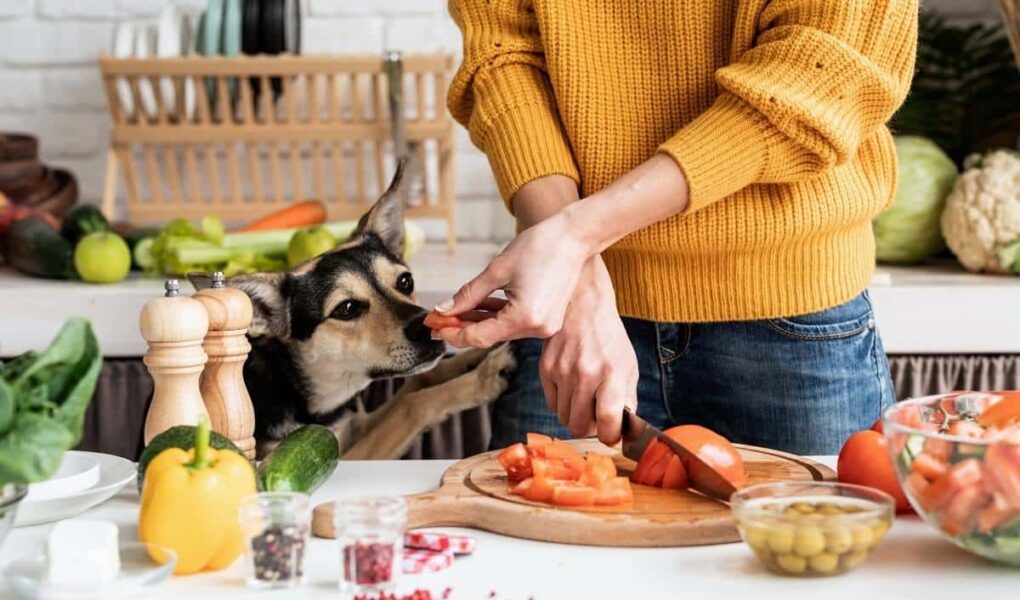As cherished members of our families, our dogs deserve the utmost care and attention when it comes to their health and diet. While it’s tempting to share our food with them, it’s essential to be aware that not all human foods are suitable for dogs. Some foods can pose serious health risks and should be strictly avoided to ensure your furry friend’s well-being. In this comprehensive guide, we explore foods that are harmful to dogs and provide insights into maintaining their health and safety.
The Dangers of Certain Foods for Dogs
Chocolat
Chocolate contains theobromine and caffeine, which are toxic to dogs. Ingesting even a small amount can lead to symptoms such as vomiting, diarrhea, rapid heart rate, seizures, and even death in severe cases.
Grapes and Raisins
Grapes and raisins can cause kidney failure in dogs. Even a small quantity can lead to symptoms like vomiting, diarrhea, lethargy, and abdominal pain. It’s best to avoid them entirely.
Onions and Garlic
Onions and garlic, whether raw, cooked, or powdered, contain compounds that can damage a dog’s red blood cells, leading to anemia. Regular consumption can be harmful and should be avoided.
Avocado
Avocado contains a substance called persin, which is toxic to dogs. While the flesh itself is less toxic, it’s safer to avoid feeding avocados to dogs altogether.
Foods with High Fat Content
Fatty Foods
Foods high in fat, such as fried items or fatty cuts of meat, can lead to pancreatitis in dogs. Pancreatitis is a painful condition that causes inflammation of the pancreas and can result in vomiting, abdominal pain, and even hospitalization.
Xylitol-Containing Foods
Xylitol is a sugar substitute commonly found in sugar-free gum, candies, and some baked goods. It can lead to a rapid release of insulin in dogs, causing a dangerous drop in blood sugar levels, seizures, and even liver failure.
Processed and Salty Foods
Processed and Salty Foods
Processed foods, especially those high in sodium, can lead to excessive thirst, urination, and sodium ion poisoning in dogs. Symptoms include vomiting, diarrhea, lethargy, and even seizures.
Bones and Cooked Meats
While dogs love bones and meat, cooked bones can splinter and cause serious internal injuries. Fatty meats can lead to gastrointestinal upset. Opt for safe, dog-friendly chew toys instead.
Dairy Products
Dairy Products
Many dogs are lactose intolerant and lack the enzyme required to digest lactose. Feeding them dairy products can lead to upset stomach, diarrhea, and discomfort.
Alcoholic Beverages
Alcohol
Alcohol consumption can have severe consequences for dogs, including vomiting, diarrhea, decreased coordination, central nervous system depression, difficulty breathing, and even death.
Safe and Healthy Alternatives
Optimal Diet
To ensure your dog’s health and safety, stick to a well-balanced diet of high-quality commercial dog food that meets their nutritional needs. Consult your veterinarian for recommendations based on your dog’s age, breed, and health status.
Dog-Friendly Treats
If you’d like to treat your dog, opt for dog-friendly treats that are specifically formulated to meet their dietary requirements. These treats are not only delicious but also safe for your furry companion.
Conclusion
Caring for your dog’s health and safety extends beyond love and companionship; it encompasses the responsible choices you make regarding their diet. While it’s heartwarming to share food with your four-legged friend, being cautious about what you feed them is crucial. By avoiding dog foods like chocolate, grapes, onions, fatty items, xylitol-containing products, and more, you safeguard your dog from potential health risks. Providing a balanced diet and choosing dog-friendly treats ensures your beloved pet enjoys a long, healthy, and vibrant life by your side.

